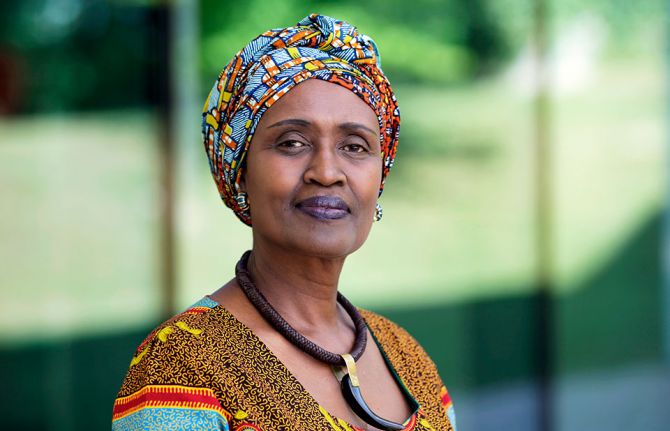

Press Statement
Statement by Winnie Byanyima, Executive Director of UNAIDS, on the occasion of World Health Day
07 April 2021 07 April 2021Winnie Byanyima, Executive Director of UNAIDS and Under-Secretary-General of the United Nations
7 April 2021
Tisha (not her real name), a young woman from the slums in east Africa, was three weeks past her due date when she was referred as an emergency case to the maternity facility in the main town.
With specialist medical attention, Tisha gave birth to a healthy baby boy, whom she named Okello. But instead of being a moment of joy for Tisha and her family, when she was unable to pay the US$ 30 delivery fee the hospital refused to discharge her.
Tisha was promptly moved to a special detention ward housing 42 other poor mothers and allocated a bed already shared by two women and their babies. Tisha and Okello would not be allowed to leave until she cleared her bill, which, the nurses told her, would rise daily. Tisha and her son were held captive until she could find the money to pay her bill.
This tragic story is all too common. Paying for health is the most regressive way of financing health care. Yet, according to the World Bank, two thirds of African countries are charging user fees at all levels of care.
Ten thousand people die every day because they cannot access health care and the cost of health services mean that every year 100 million people are pushed into extreme poverty paying for them. That equates to three people every second.
These huge inequalities in health care continue to widen as health systems around the world increasingly become profit-led. Many of the poorest countries in the world are trying to sell health through health insurance and user fees. But how can you sell health to somebody who does not have even the basics to survive, to someone who doesn’t have a job and is struggling to find the next meal.
Many governments claim that they cannot afford to pay for health, but the reality is that they can if they tax progressively so that everyone pays their fair share, stop companies from hiding their profits offshore and end tax exemptions. This would go a long way towards balancing the glaring inequalities in access to public services, including health care.
These profit-driven models have fragmented already weak health systems that exclude many people—poor people, lesbian, gay, bisexual, transgender and intersex people, prisoners, sex workers, people who inject drugs and numerous marginalized groups. The way health is financed is inequitable. In addition, the lack of human rights for marginalized groups denies them access to quality health care.
Inequalities in human rights result in inequalities in health. The right to health of ALL is part of the 1948 Universal Declaration of Human Rights. It states that, “Everyone has the right to a standard of living adequate for the health and well-being of himself and of his family, including food, clothing, housing and medical care and necessary social services, and the right to security in the event of unemployment, sickness, disability, widowhood, old age or other lack of livelihood in circumstances beyond his control.”
The biggest steps forward in health have often happened in response to a major crisis—think of the post-Second World War health systems across Europe and in Japan, or how AIDS led to universal health care in Thailand.
Now, in the midst of the COVID-19 crisis, leaders across the world have an opportunity to build the health systems that were always needed, and which cannot be delayed any longer. We cannot tinker around the edges—we need radical, transformative shifts. The COVID-19 response gives us an opportunity to change the rules and guarantee equality.
On World Health Day 2021, let us make that call to ensure that people’s lives come before profits. Let governments make the commitment that they will guarantee that everyone, without discrimination, has access to quality health care. The right to health is an inalienable human right.
This coronavirus crisis we find ourselves in today could, like other global crises before, create the global and national solutions in health care we so desperately need. Let’s seize the moment!
UNAIDS
The Joint United Nations Programme on HIV/AIDS (UNAIDS) leads and inspires the world to achieve its shared vision of zero new HIV infections, zero discrimination and zero AIDS-related deaths. UNAIDS unites the efforts of 11 UN organizations—UNHCR, UNICEF, WFP, UNDP, UNFPA, UNODC, UN Women, ILO, UNESCO, WHO and the World Bank—and works closely with global and national partners towards ending the AIDS epidemic by 2030 as part of the Sustainable Development Goals. Learn more at unaids.org and connect with us on Facebook, Twitter, Instagram and YouTube.
